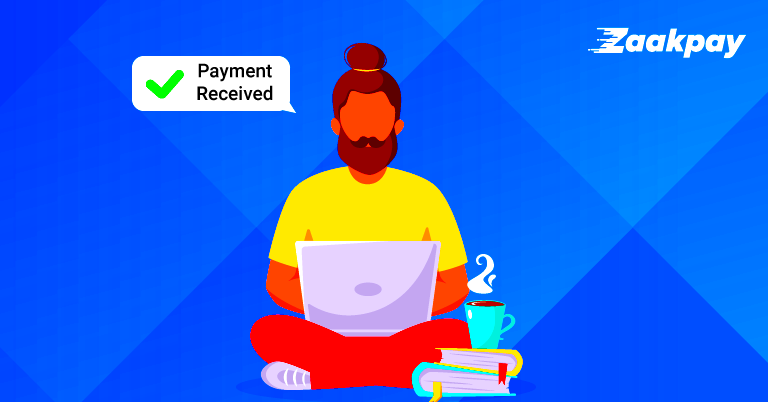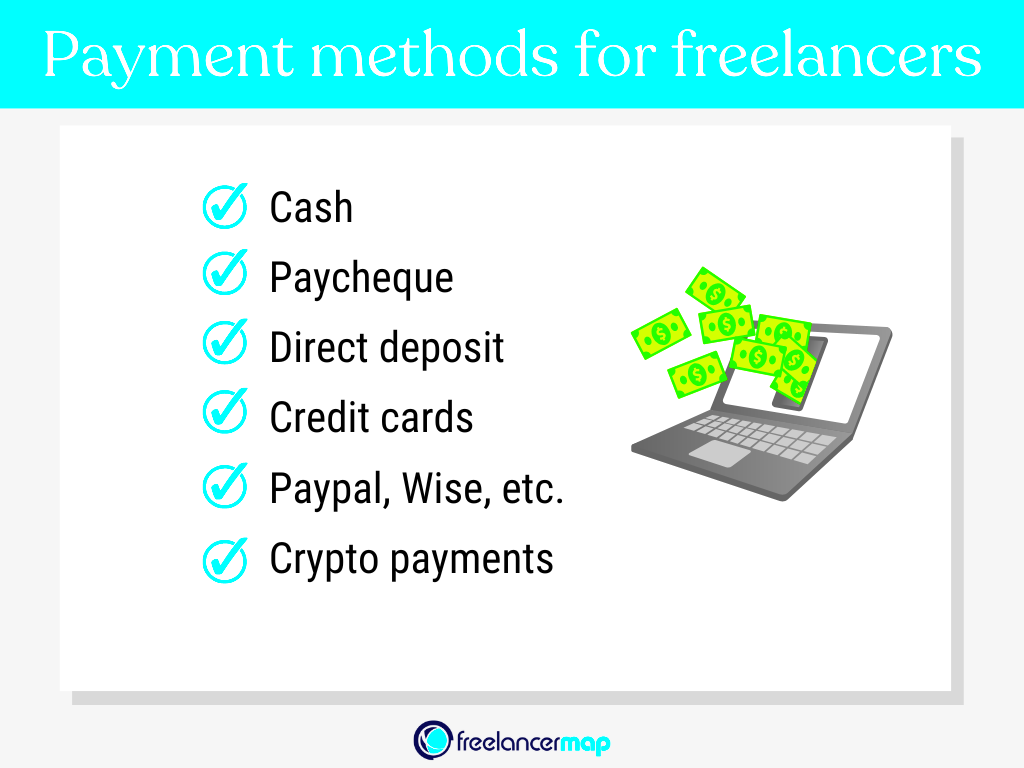The option of freelancing job will give you opportunity to work with various people in your field, however frequent payment is very important. Understanding this will enable you plan your budget wisely and set a realistic idea of what your future earnings are going to look like. Several things may determine how often freelance jobs pay including: type of project, contract signed between client and freelancer or way chosen for paying. So let us discuss it now.
Common Payment Models Used by Freelancers

Commonly used models of payment among freelancers include:
- Hourly Rate: Freelancers charge by the hour. Payments are often made weekly or bi-weekly.
- Fixed Price: This involves charging a set amount for a specific project or deliverable. Payment is often made after project milestones.
- Retainer: Clients pay freelancers a regular fee (monthly, for example) for ongoing services.
- Commission-based: Payments are made based on sales or leads generated through the freelancer's work.
Each model thereby has its advantages, as well as disadvantages. For example, hourly work guarantees constant paychecks; however, this kind of compensation system could lead to unpredictable monthly earnings. Meanwhile, fixed-price contracts allow for forecasting but they may introduce risks when a plan exceeds the estimated amount of resources.
Also Read This: Why Can’t I Post a Gig on Fiverr? Understanding Common Issues and Solutions
Factors Influencing Payment Timing

There are various things that can influence when payments get to freelancers, and here are some of them.
- Client Payment Terms: Different clients have varying payment policies, such as Net 30 or Net 15, indicating when payment is due.
- Project Size and Complexity: Larger projects may involve staggered payments tied to specific milestones.
- Industry Standards: Some industries have common practices regarding payment schedules that freelancers need to be aware of.
- Client Reliability: Established clients are more likely to pay on time compared to newer or less organized ones.
By comprehending these aspects, freelance workers can carry out successful contract discussions and make arrangements for their finance.
Also Read This: How Many Levels Are There on Fiverr?
Payment Methods Available to Freelancers
When you are an independent contractor, choosing the right mode of payment is critical in guaranteeing smooth transactions. Given the many choices available, it is important to select one that caters to both your interests as well as those of your clients. Different options also impact on how fast you receive your funds. Below are some common payments used by freelancers.
- PayPal: A widely used platform that offers instant transfers. It's user-friendly but be mindful of transaction fees.
- Bank Transfers: Direct bank transfers are secure and straightforward but can take a few days, depending on the banks involved.
- Stripe: Great for those who have an online store or recurring payments. Stripe allows you to accept credit card payments easily.
- Wise (formerly TransferWise): Best for international payments, offering lower fees and favorable exchange rates.
- Escrow Services: These services hold funds until both parties are satisfied with the work. It’s a safer option for larger projects.
These many ways to pay have their advantages and disadvantages. So it’s important to keep in mind things such as how much you will be charged, how quick the payment is processed, as well as safety when making your choice.
Also Read This: What You Can Sell on Fiverr: A Comprehensive Guide
Managing Cash Flow as a Freelancer
Cash flow is the mainstay of all businesses run by freelancers. It can be an uphill task to maintain because of erratic payment schedules. And yet effective cash flow management is an indispensable element toward longevity in this area. Discussed below are some ways to help you manage your finances effectively:
- Create a Budget: Track your income and expenses. This helps you understand where your money is going and where you can cut back.
- Set Aside a Reserve: Aim to save at least a month’s worth of expenses. This cushion will help you during lean months.
- Invoice Promptly: Send invoices as soon as the work is completed. The sooner you invoice, the sooner you’ll get paid.
- Use Payment Reminders: A friendly reminder can encourage clients to pay on time.
- Diversify Your Income: Consider taking on multiple clients or projects to ensure a steadier income stream.
If you want to keep your cash flow healthy and prevent financial strain, you should adopt these tactics.
Also Read This: How to Create a Gig Title on Fiverr
How to Handle Late Payments
However, freelancers are often plagued by late payments which can sometimes be really annoying. How to handle late payments means alote on how you can keep your cash flow on track and also protect your relationships with clients. Thus, here is an easy solution on how to handle late payments:
- Check Your Agreement: Review the contract to ensure you understand the payment terms and deadlines.
- Communicate Promptly: Reach out to your client with a polite reminder about the overdue payment. Sometimes, they may simply have forgotten.
- Send a Formal Invoice: If the payment is still not received, send a formal invoice with the original terms highlighted.
- Consider Late Fees: If applicable, mention any late fees that may apply as per your agreement. This can encourage timely payment in the future.
- Assess the Relationship: If late payments become a habit, evaluate whether it's worth continuing the relationship with that client.
Retaining a profiled reputation and receiving the deserved payment for the efforts put in by you could both be achieved by managing delayed remissions professionally.
Also Read This: Can I Sell My Fiverr Account? An In-Depth Guide
Setting Clear Payment Terms with Clients
As a freelancer, establishing clear payment terms is crucial for seamless transactions and prevent any confusion. Establishing payment expectations between you and your client lays the groundwork for harmonious working relations. This article will outline ways in which these terms can be effectively set.
- Define Your Rates: Be upfront about your fees. Whether you charge hourly or per project, make sure the client knows what to expect.
- Specify Payment Schedules: Clearly outline when payments are due. This can be upon project completion, after certain milestones, or at regular intervals.
- Discuss Payment Methods: Agree on how you will be paid—whether it’s through PayPal, bank transfer, or another method. This helps avoid confusion later.
- Include Late Payment Policies: Clearly state any penalties for late payments. This might include late fees or a halt in work until payment is received.
- Put Everything in Writing: Whether through a formal contract or an email, ensure all terms are documented. This protects both parties and provides a reference point.
Laying down well-defined payment conditions from outset establishes the basis for good customer association saves arguments later regarding payments.
Also Read This: How to Register on Fiverr as a Freelancer
Frequently Asked Questions
Common payment, schedule, and money management issues often exist among freelancers. The following are some frequently asked questions that can help in clarifying such concerns:
- How often do freelancers get paid? It varies based on the client and project. Many freelancers receive payments after milestones, monthly, or upon project completion.
- What should I do if a client refuses to pay? Start by sending a polite reminder, and if that doesn’t work, consider formal communication or legal action if necessary.
- Can I charge a late fee? Yes, if it’s clearly stated in your payment terms. Just ensure your client is aware of this beforehand.
- What is the best payment method for freelancers? It depends on your needs, but PayPal and direct bank transfers are popular due to their ease and reliability.
- How can I ensure clients pay on time? Setting clear terms, sending timely invoices, and maintaining open communication can help ensure timely payments.
Freelancers facing difficulties with payment issues can find these FAQs very useful since they serve as a guide.
Conclusion
Understanding how payments work as a freelancer is key for one’s financial management and it also helps to keep an easy working relationship with clients. Defining payment terms, selecting suitable payment methods, and dealing with delays in a professional manner can help in establishing a strong base for your freelance business. Remember to keep track of everything, communicate properly and don’t fear fighting for your paychecks. This will equip you well enough to maneuver through the freelancing world and succeed in it.




